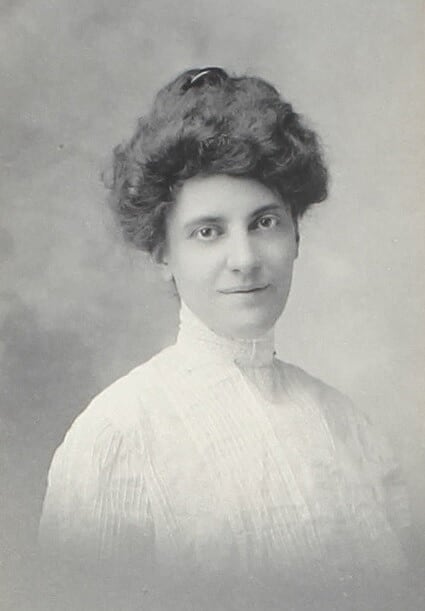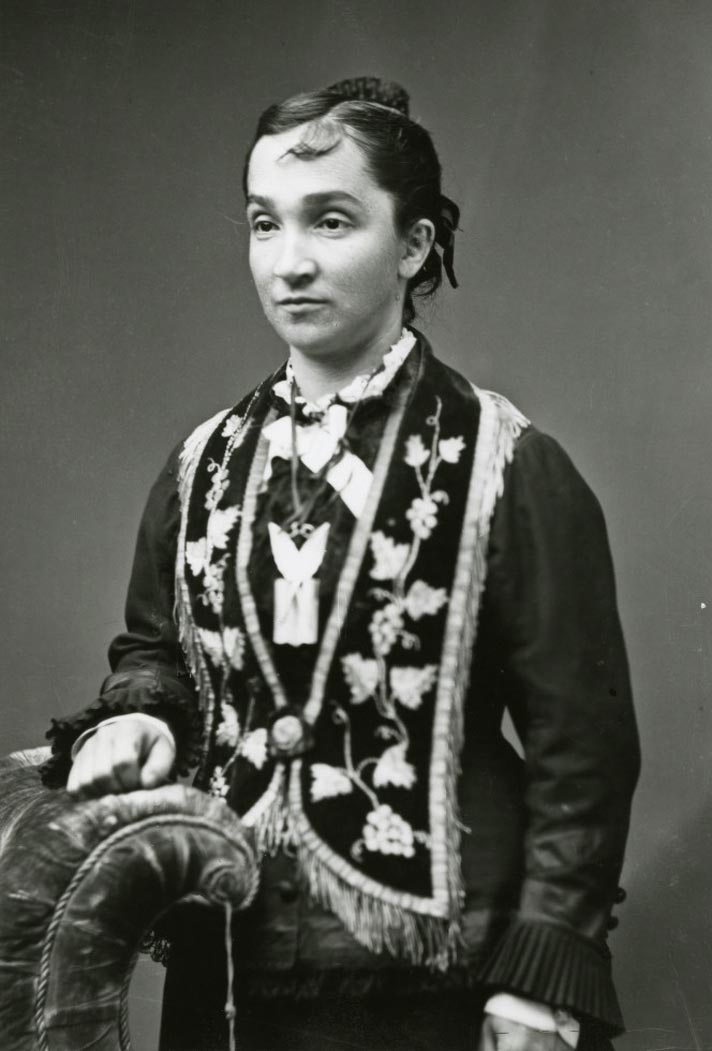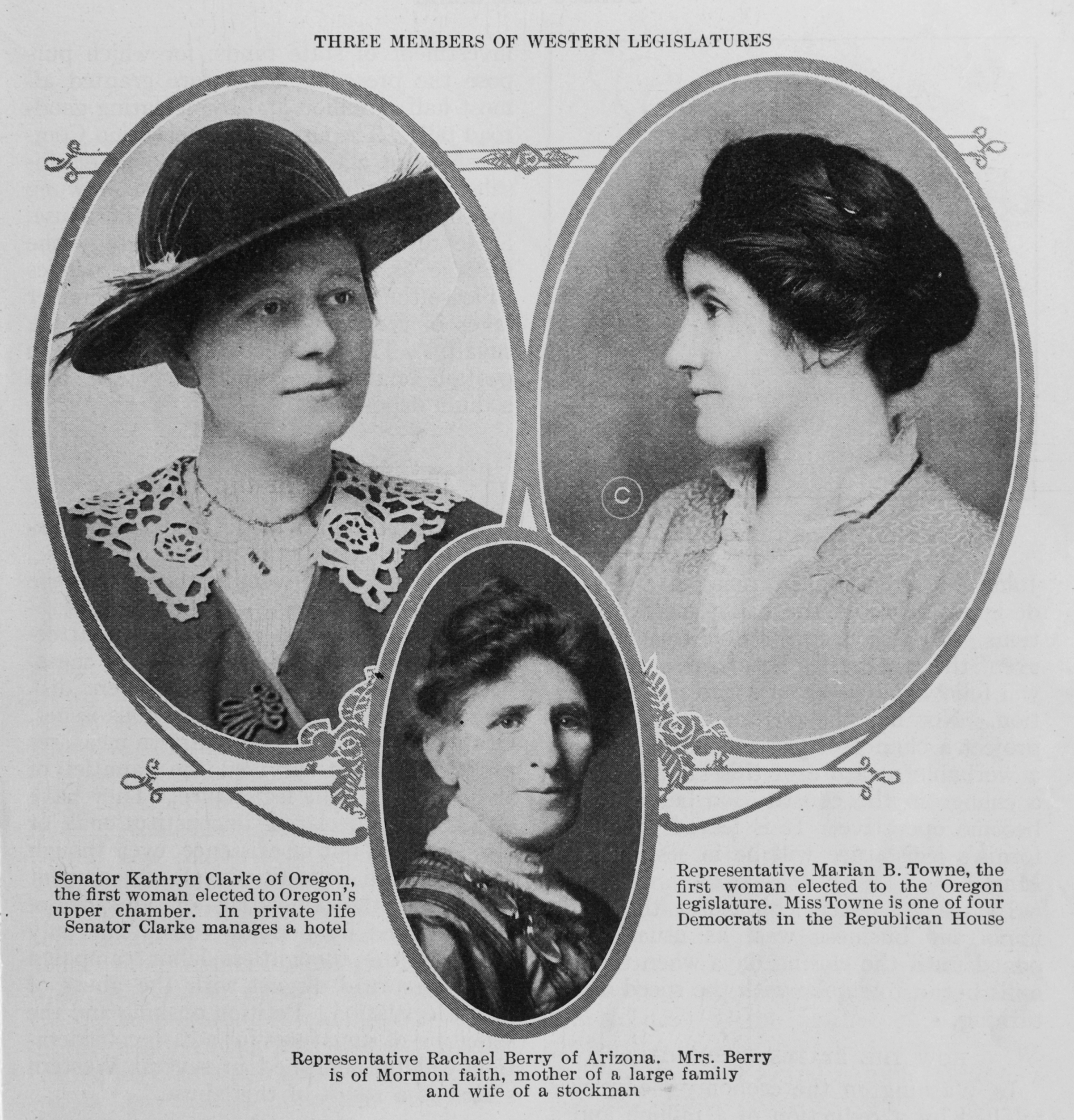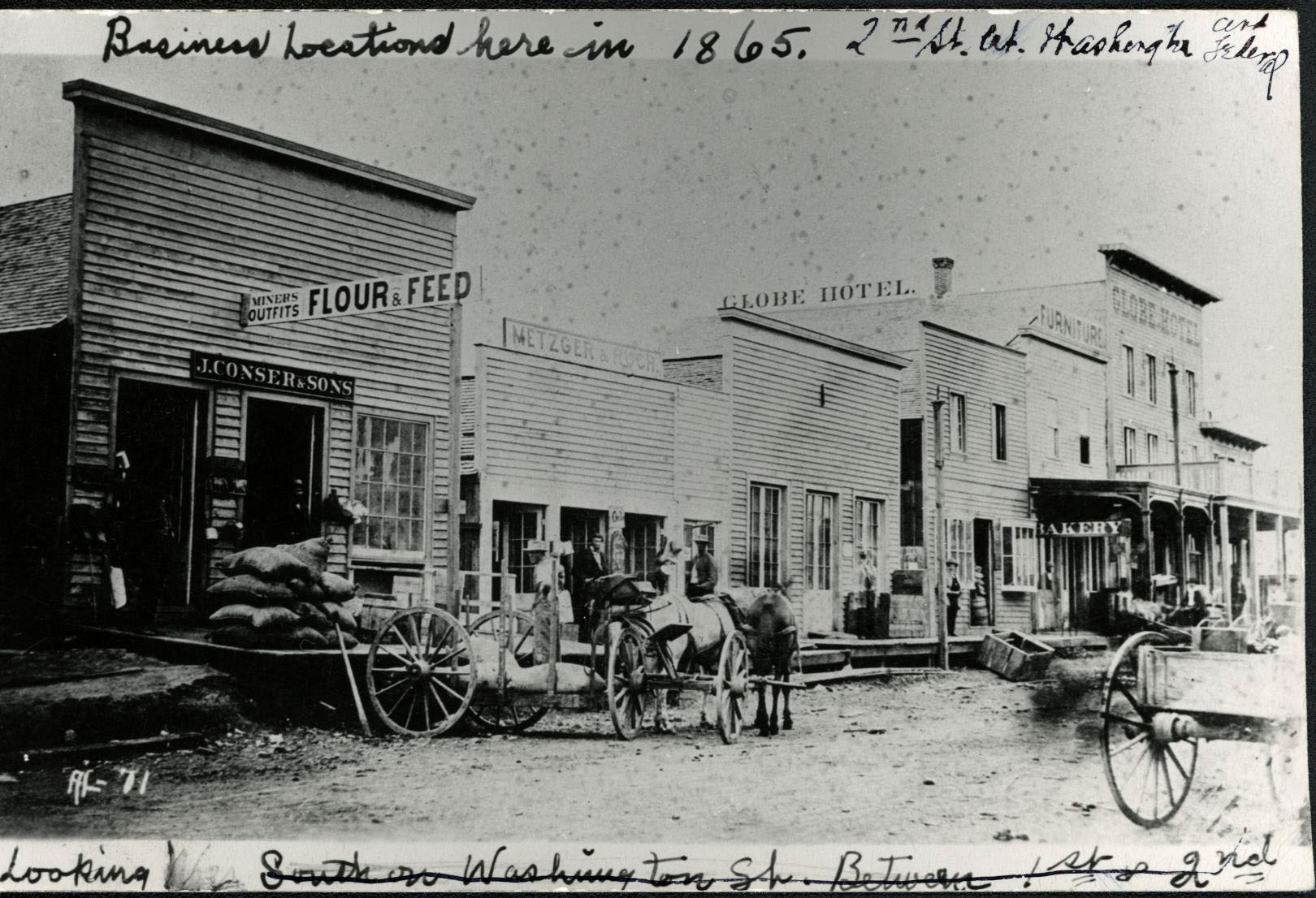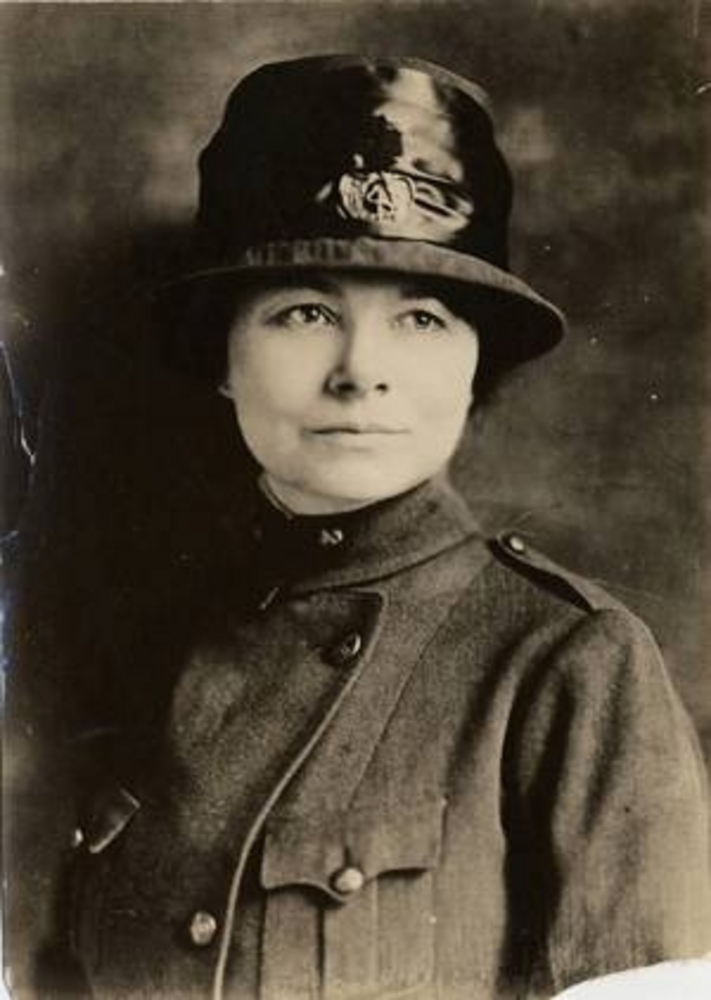In January 1920, during a special session called by Governor Ben W. Olcott, Sylvia Thompson—the lone female legislator in the Oregon State Senate—introduced a resolution to ratify the Nineteenth Amendment to the U.S. Constitution. Oregon legislators passed House Joint Resolution 1, making Oregon the twenty-fifth state to ratify the amendment that gave women the right to vote. Although Thompson did not have a long career in public office, she is remembered for this significant act, which helped propel the national ratification of woman suffrage.
Sylvia Williams was born in Louisville, Kentucky, on September 10, 1873. She married Alva Hughes on April 29, 1891, in Jefferson County, Kentucky; their daughter was born in 1894. The couple divorced, and on January 7, 1903, she married Walter S. McGuire. They moved to Portland, where McGuire was listed as a salesman in the 1910 census. During this period, Sylvia McGuire was frequently mentioned in newspaper stories for her performances of Southern folklore and readings delivered in Black American vernacular. One of her costumed personas was the "Queen of Mombasa" (a reference to Nigeria), and she performed at various events, including suffrage meetings. In 1911, her African queen skit was part of the entertainment at the Commercial Club to honor ex-president Theodore Roosevelt during his visit to the city. The banquet had a jungle theme and included both stuffed and live animals.
In March 1911, Sylvia filed for divorce, informing the court that when she had moved east in 1909, McGuire requested that she return to Portland, promising to treat her more kindly. But he had continued to subject her to "cruel, malicious and inhuman treatment, which…destroyed her peace of mind." McGuire did not contest the divorce, and the decree was granted. On September 7, she married Alexander Thompson, who was reportedly "from Spokane, with business interests in eastern Oregon." The census lists his previous jobs as salesman, census enumerator, and drawbridge operator.
In 1912, the family moved to The Dalles, where Sylvia Thompson campaigned for woman suffrage. She was president of The Dalles Sorosis Club and was secretary of the Oregon Federation of Women's Clubs in 1915–1916. She was elected to the legislature in 1916, serving two terms in the Oregon House of Representatives for District 29 (Hood River and Wasco Counties). She was the only woman legislator in the 1917 and 1919 sessions. At the beginning of her first session, a newspaper described her this way: “Besides politics, woman suffrage and Woodrow Wilson, her chief hobbies are being a good housekeeper and mother.” Another article reported her as saying that “Women are your real progressives, they refuse to be bound by political traditions, they rebel against worn out customs and they decline to put party preference above efficiency….Women are voting today for men and measures because they are right and good in themselves and not because of the partisan aspects of the proposition.”
In the legislature, Thompson served on the House Education Committee and the Committee for Health and Public Morals. She sponsored several bills on education, advocating for an eight-month minimum school year, minimum salaries for teachers, and a prohibition of discrimination between male and female teachers. She also supported funding for the care of developmentally disabled children and protections for women workers. During an absence of the House Speaker in 1917, she acted as Speaker of the House Pro-Tem.
Thompson was one of several legislators who urged Governor Olcott to call a special session of the legislature in 1920, in part to consider ratification of the Nineteenth Amendment. Her resolution calling for ratification was under consideration by the House Resolutions Committee when Senator Robert Farrell (Portland) introduced a competing resolution in the Oregon Senate. Thompson lobbied successfully to have Farrell’s resolution withdrawn in favor of hers. As a result, Thompson earned the honor of introducing a historic piece of legislation. Both chambers voted to approve the House resolution, which passed unanimously.
In 1920, Thompson and her husband moved to Portland, where she was elected to serve as president of the Portland Federation of Women's Clubs. Although she continued to campaign for the Democratic Party throughout the state and served on the Democratic Party Campaign Committee, she appears to have been part of the split that occurred in the party over support for presidential candidate George Chamberlain rather than Woodrow Wilson. During the 1920 primary election, she ran for Congress in District 3 in opposition to Esther Pohl Lovejoy. Lovejoy won the primary but lost to Republican incumbent Clifton N. McArthur.
In 1922, Thompson became president of the Oregon Federation of Women's Clubs and actively opposed the Compulsory School Bill. She was a delegate to the National Democratic Convention in 1924 and supported Herbert Hoover for president in 1928. She also served as director of the Portland's Women Research Clubs in 1930 and president of the Anti-Food Tax League, where she opposed a tax on oleomargarine in 1931.
Sylvia Thompson died of tuberculosis in Troutdale on February 22, 1950.
-
![]()
Sylvia (Mrs. Alexander) Thompson, Member of the Oregon Assembly, 1920.
Courtesy the Woman Citizen, Vol.4, no.3, Feb.21, 1920 -
![Murray Wade's political cartoon appeared in the Salem Capital Journal.]()
Political cartoon of Sylvia Thompson and Bert Farrell, January 17, 1920..
Murray Wade's political cartoon appeared in the Salem Capital Journal. Courtesy Columbia Gorge News -
![]()
Early Oregon Suffrage Worker, Sylvia Thompson, One of 1st Women in Oregon Legislature, Democrat, 1938.
Oregon Historical Society Research Library, 015121
-
![]()
"Fair Nominee Hesitates. Mrs. Sylvia Thompson Not to Run Unless Sure of Election," Oregonian, July 20, 1916.
Courtesy The Oregonian
-
![]()
"Woman Legislator To Run," Oregonian, April 6, 1918.
Courtesy The Oregonian
Related Entries
-
![Caralyn B. Shelton (1876–1936)]()
Caralyn B. Shelton (1876–1936)
Oregon Governor Caralyn B. Shelton is recognized as the first woman act…
-
![Josephine Martin Plymale (1845–1899)]()
Josephine Martin Plymale (1845–1899)
Josephine Martin Plymale was both a woman of her time and a woman who d…
-
![Kathryn Clarke (1873-1940)]()
Kathryn Clarke (1873-1940)
Kathryn Clarke, the first woman to serve in the Oregon Senate, made wor…
-
![The Dalles]()
The Dalles
The Dalles is one of the oldest permanently occupied places in Oregon, …
-
Woman Suffrage in Oregon
The campaign to achieve voting rights (also called suffrage or the fran…
Related Historical Records
Map This on the Oregon History WayFinder
The Oregon History Wayfinder is an interactive map that identifies significant places, people, and events in Oregon history.
Further Reading
Jensen, Kimberly. Oregon’s Doctor to the World: Esther Pohl Lovejoy and a Life in Activism. Seattle: University of Washington Press, 2012.






